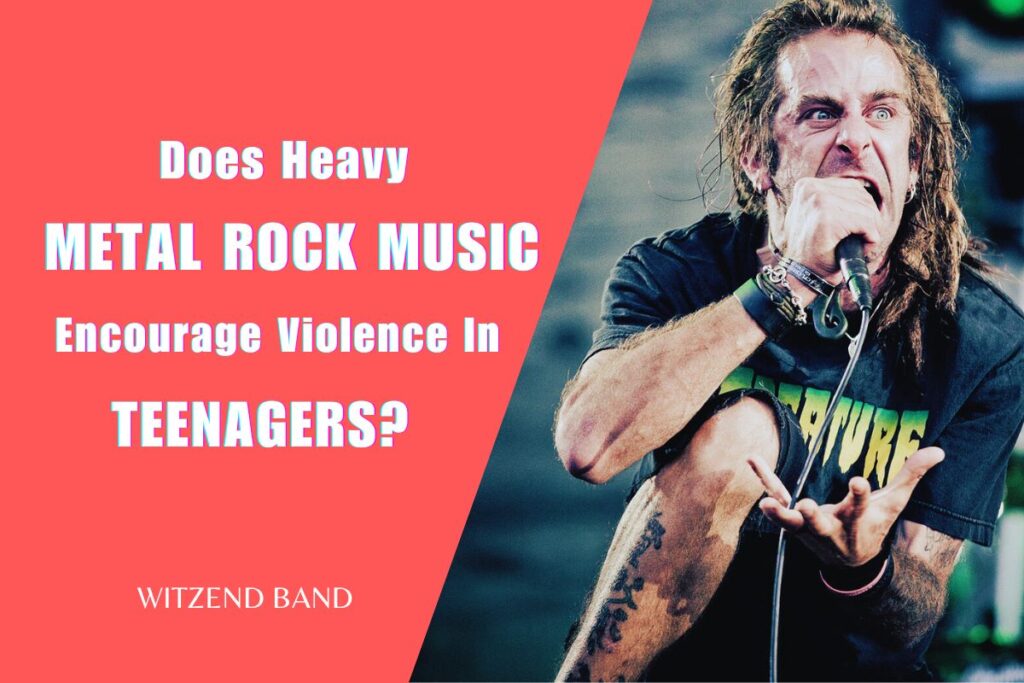The best music is essential because it gives you something to face the world. The importance of music to youth can be measured according to how much they spend listening to it.
We all know well that rock music promotes violence in teenagers with unfavorable effects, however, which of these is most negatively affected by this kind of music? Although some individuals might think that rock music only impacts older age, research proves that rock music has the most negative impact on youth. This is because younger generations are more likely than older generations to be influenced by rock music, and many rock songs have explicit lyrics that have the potential to negatively affect teenagers.
Since heavy metal music started in the 1980s, it caused controversy. Heavy metal music might have negative effects on teenagers because it usually features angry music and violent lyrics. Numerous investigations have been performed to examine the impact of heavy metal music on teenagers.
For a very long time, violent, sexist, and rebel themes and attitudes have been associated with heavy metal rock music. This article explores the possibility of a relationship between teenage experiences with aggressive behavior and attitudes and heavy metal music.
Correlational Studies:
Numerous correlational studies show a relation between heavy metal music and disturbing attitudes and behaviors in teenagers. These include disputes in school, lower academic performance, weakened relationships with parents, and engagement in risky behaviors such as substance abuse and careless driving.

Characteristics of Heavy Metal Fans:
Fans of heavy metal are regularly involved in reckless behavior because of their desire for sensation preferences and craving for thrills. Along with sadness and a sense of separation, a number of them expressed thoughts of suicide and self-harm.
No Causal Relationship:
Although challenging or at-risk children often love heavy metal music, this is not the only reason for what they do. Instead, heavy metal music attracts troubled teenagers due to how it fits their emotional requirements and worldview.
Violence
One of the most frequently advanced allegations regarding heavy metal music is that it encourages violence in listeners, particularly in teenage listeners. This is false, according to a Loyola University study, because there is no connection between teenage violence and heavy metal music. It was shown that individuals who listened to heavy metal music had lower levels of violence compared to those who were part of the control group. Although the exact reason is not known, one theory is that the listener becomes fatigued by violent music and loses interest in using violence as a form of emotion.
Impact of Music on Emotions:
Music has the power to intensify already-existing emotions, which makes it a useful instrument for mood control. Heavy metal music can be calming for teenagers who are already feeling angry, sad, or lonely, yet immersion in such themes could aggravate their negative emotions.
Music of any type influences mood. To find out if heavy metal music makes people feel good or bad, tests have been carried out on the type of music. Researchers Shaleen L. Coss of Loyola University’s psychology department found that listening to heavy metal music with violent lyrics and music reduced the possibility of post-traumatic depression in comparison to listening to non-violent songs. Because violent music gives one a rush, they also found that heavy metal listeners had better self-esteem than other individuals.
Hypersexuality
It has been found that a teen’s reported “macho” personality and how much heavy metal music they listen to are related. Heavy metal enthusiasts are more likely to fit into a personality type that is motivated by a constant need for excitement and feeling in life. Although they might not be friendly, these people usually are social when it comes to relationships. Additionally, there is research that suggests heavy metal fans have a greater probability of engaging in dangerous behavior, as per the book “Media Violence and Children.”
Knowledge
According to the Calgary Herald, teens who score higher on IQ tests have an innate attraction for heavy metal music because it helps them relax from their busy lives. Those who are intelligent enjoy feeling the powerful sense of togetherness and solidarity that occurs among heavy metal music enthusiasts. Many teenagers see heavy metal music as a way of expressing their pent-up fury, and it can help teens relax, which encourages them to work harder and achieve better academically.
The Conclusion
Heavy metal music may increase the risk of violence or violent actions in teenagers, even though it is not the actual cause of such behaviors in individuals who have already experienced emotional distress. The music’s psychological connection and its themes of desperation and anger can sustain negativity and encourage unhealthy coping mechanisms. To fully understand the intricate relationship between teenage behavior and heavy metal music, more research is needed.

Frequently Asked Questions
Does metal music lead to violent behavior?
According to what most people think, no evidence listening to heavy metal music makes individuals more irrational or violent. Research shows that for many fans, the complete opposite might be true.
Why do some individuals see metal bands as a ‘bad influence’ on teenagers?
Stereotypes and misconceptions have contributed to the unfair branding of metal bands as bad influences. These points of view, however, cannot be verified by real data and neglect the wide range of metal music experiences and interpretations between enthusiasts.
Does heavy metal music harm individuals in a bad way?
It is wrong when you say that listening to heavy metal music harms individuals in general. While the genre’s themes of rebellion and gloom might hit a chord with specific individuals, many others find ease, in expressing themselves, and confidence in it. In the end, the impact of music is extremely unique and cannot be defined.
Read More:
How To Download Music From YouTube



